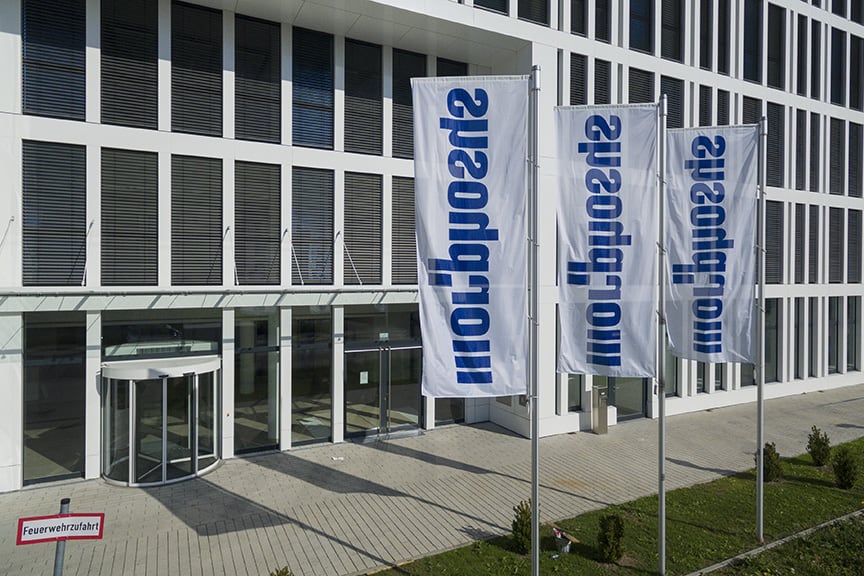
A US court has sided against Morphosys in its patent dispute with Genmab and Johnson & Johnson over myeloma blockbuster Darzalex, blocking the start of a jury trial.
Morphosys started its patent infringement claim in 2016, shortly after J&J won approval for anti-CD38 monoclonal antibody Darzalex (daratumumab) in the US as a fourth-line myeloma treatment. Since then, use of the first-in-class drug has expanded into first-line therapy, and sales have exploded, rising 63% to more than $2bn last year.
Morphosys had maintained that Darzalex infringed on three US patents (Nos 8,263,746, 9,200,061 and 9,758,590) covering its own anti-CD38 antibody – MOR202 – which is in a phase 1/2 trial. However, the US District Court of Delaware have declared the three patents invalid, torpedoing the German biotech’s chances of unlocking financial redress from Genmab and J&J’s Janssen pharma division.
The summary judgment order declared all three patents invalid due to “lack of enablement”, and so a jury trial due to debate the matter next month will now not take place.
Enablement disputes typically come into play when one party has made broad claims in a patent – for example covering a broad spectrum of antibody types against a target – but only provides detail on certain “representative” antibodies. It is used to try to claim ownership of a discovery and block other developers, but can backfire if the other party can convince a court that the patent lacks sufficient detail to be enforceable.
In a statement, Morphosys said it was disappointed by the outcome but is considering its options and may launch an appeal.
Danish biotech Genmab and Janssen also pressed a claim in the lawsuit that the three MorphoSys patents were unenforceable due to “inequitable conduct” by MorphoSys, but that issue remains to be decided.
The claim said the German biotech mispresented to the Patent Office the reliability of the data for the anti-CD38 antibodies described in its patents in other words it obtained patents in a way that wasn’t proper.
Morphosys insists that the court decision has “no bearing” on its patents for MOR202 and its ability to develop the antibody “in various indications.”
Its phase 1/2 trial of MOR202 is scheduled to read out shortly, according to the ClinicalTrials.gov database, and a second trial of the drug is due to start in China in the first quarter of this year with the help of partner I-Mab, which licensed rights to the drug in mainland China, Hong Kong, Macau and Taiwan in November 2017.




